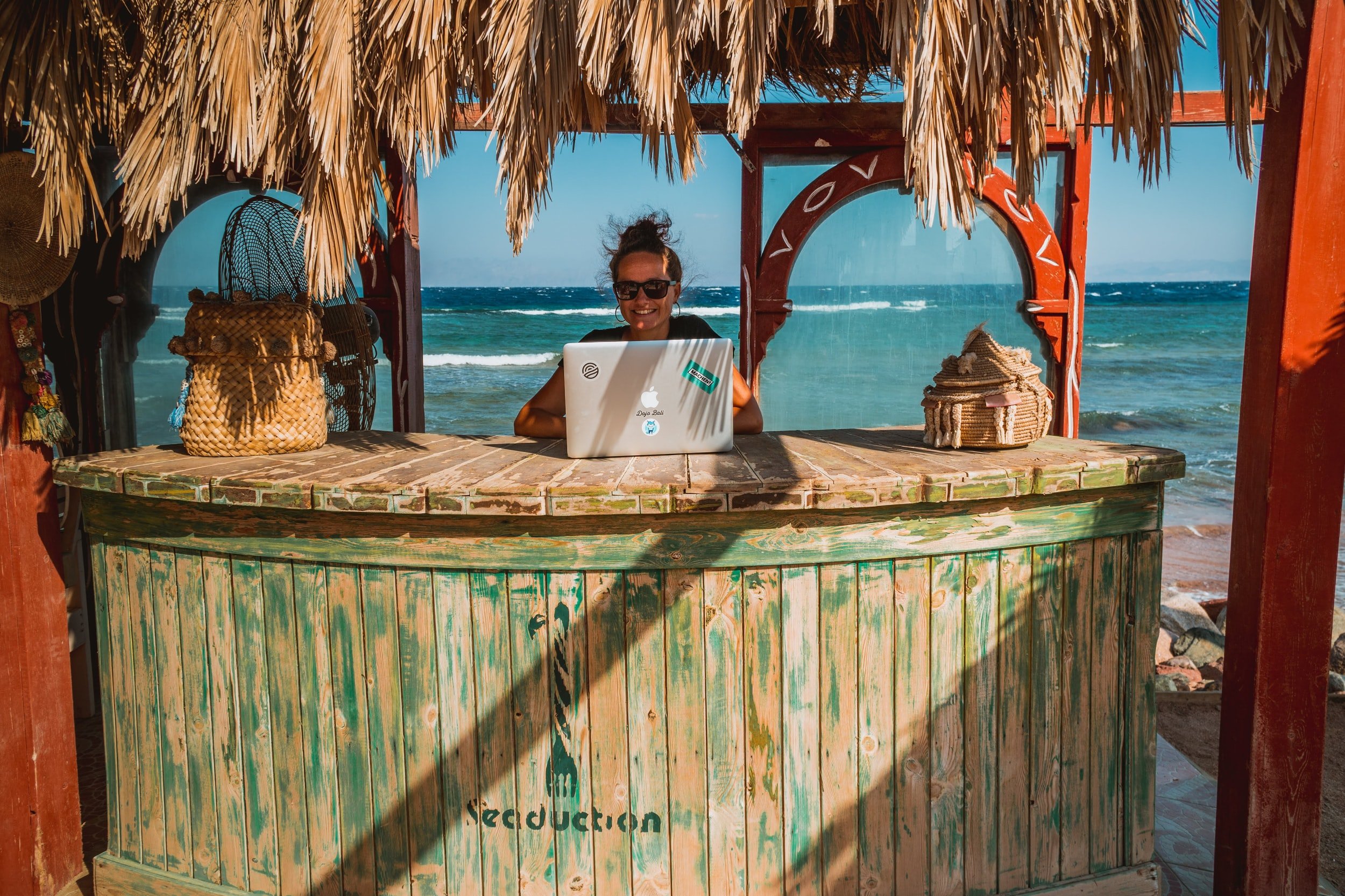Trove’s insight on the rise of ‘Digital Nomads’: the new work-from-home
This is a blog by Trove Associate Reema Maarouf.
A digital nomad is a person who conducts their life in a nomadic manner while engaging in remote work while traveling to different locations on a regular basis. Following the coronavirus pandemic, more travelers are opting for a nomadic lifestyle as it fulfills a need for travel, adventure, and freedom.
Let’s share some fun facts and statistics regarding a scheme that is shaping our industry:
Taiwan was rated as the best country for digital nomads in 2021, followed by Mexico, Costa Rica, Malaysia, and Portugal are listed after that based on personal satisfaction.
The majority of digital nomads live in hotels (51 percent), followed by households with friends and family (41 percent), Airbnb (36 percent), cars, RVs, (21 percent), and hostels (16 percent).
More digital nomads are heading towards exotic destinations to work, with the most well-liked being the Caribbean, Costa Rica, and Southeast Asia (particularly Bali and islands across Thailand).
A demographic breakdown of digital nomads includes Millennials: 44%, Gen Xers: 23%, Gen Zers: 21%, and Baby Boomers: 12%.
Last but not least, by 2035, it is expected that the number of people living the digital nomad lifestyle will reach over 1 billion.
More people are adopting the digital nomad lifestyle every day. This includes retirees, solopreneurs, freelancers, corporate workers, and families of digital nomads. Simultaneously, many nations started to loosen travel restrictions. This can be seen through simple Google Search analysis: results for "digital nomad" surged from 1,300,000 in January 2019 to over 56,700,000 in January 2022.
24 million Americans plan to become digital nomads in the next two to three years. Therefore, the long-term prospects for digital nomadism appear promising, especially in light of the pandemic's demonstration that many individuals can work efficiently from home or other flexible workspaces. Some businesses are apprehensive to adopt this new mode of operation. However, an increasing number of businesses—both big and small—are switching permanently to remote working. Companies that don't allow remote work flexibility run the risk of losing their top staff. In fact, if forced to work in an office, 30% of remote employees say they would switch employers.
Moreover, many countries require that you obtain a digital nomad visa if you plan on working or staying for extended periods of time. This visa enables you to work and earn money while traveling in addition to allowing you to remain and reside in the nation of your choice. Each nation has its own set of laws governing the issuance of visas, work permits, and resident visas. Malta for instance is an ideal country for digital nomads. The nomad residence permit in Malta, for example, is designed for freelancers, small business owners, and full-time employees who are eligible to apply.
All of these advancements may have a big influence on how people live and work in 2022 and the years that follow, as well as contribute to the globalization of digital nomadism.
Destinations are increasingly seeking to attract high-value digital nomads. The travel, tourism, and hospitality industries should work towards adopting and developing special strategies to successfully position themselves in the market. To learn more about what is possible, reach out to one of our destination development advisors at Trove to explore how you can set your destination as a traveler’s first choice.




